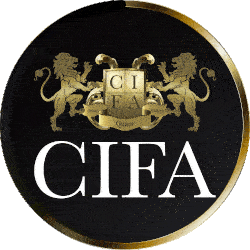


The Financial Conduct Authority (FCA) is the regulatory body for the financial services industry in the United Kingdom. It was established in 2013, taking over many of the responsibilities of its predecessor, the Financial Services Authority (FSA). The FCA has the mandate to protect consumers, enhance the integrity of the UK financial system, and promote competition to the benefit of consumers.
When we talk about 'Regulated Activities', these are certain types of financial services activities that are governed by the FCA under the framework defined by the Financial Services and Markets Act 2000 (FSMA). The FSMA, along with the Financial Services and Markets Act 2000 (Regulated Activities) Order 2001 (RAO), lists out these activities in detail. If a firm wishes to perform these activities in the UK, it must be authorised or registered by the FCA, unless it is specifically exempt.
Authorisation implies that the firm has to meet certain standards and criteria set out by the FCA and maintain these standards on a continuous basis. The process of becoming authorised involves submitting an application to the FCA demonstrating that the firm is 'fit and proper' to carry out regulated activity, which includes providing information about the firm’s proposed business model, strategy, governance, and key individuals.
Here are some key examples of FCA regulated activities:
Accepting Deposits and Lending: This includes a broad range of activities typically performed by banks, credit unions, and building societies. These financial institutions accept money from the public (deposits) which are repayable on demand or notice and use these funds to provide credit to consumers and businesses.
Investments: Dealing in or managing investments covers activities related to buying, selling, subscribing for or underwriting certain investments, or offering to do so, either as an agent or principal. This also includes advising on investments, where a firm provides personal recommendations about the suitability of particular investment products.
Insurance: This covers selling, arranging, advising on, or dealing as an agent of an insurer, in relation to certain specified insurance products.
Mortgages: Selling, arranging, or advising on mortgages covers activities related to home finance transactions, like mortgages or home purchase plans. This could include mortgage brokers, mortgage intermediaries, and lenders who deal directly with the public.
Operating a Collective Investment Scheme (CIS): This includes setting up, operating, or winding up a CIS, which is a fund that several people contribute to. A manager then uses this pooled money to invest in a portfolio of assets.
It's crucial to understand that carrying out a regulated activity in the UK without FCA authorisation is generally a criminal offence, with certain exceptions. All firms undertaking regulated activities are also required to adhere to certain standards and rules set out by the FCA, which are designed to ensure they conduct their business with integrity, offer appropriate products and services, and treat their customers fairly. This further extends to how firms handle customer complaints and use customer data. The FCA has the power to enforce its rules and can take disciplinary action against firms, ranging from fines to withdrawal of a firm's authorisation to conduct regulated activities, for breaches of its rules.
0 comments